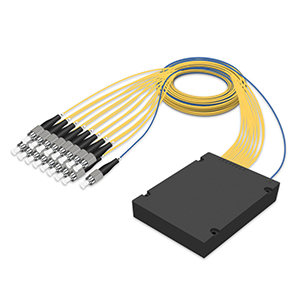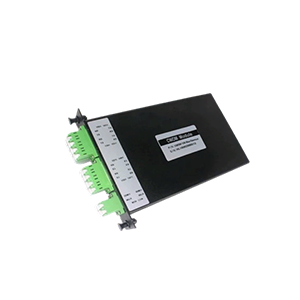The Cisco ISR 4451 router is widely used in enterprise networks. This article will focus on the bandwidth limitations of this router. We will first briefly introduce the basic information of the Cisco ISR 4451, including its series and positioning. Next, we will define the concept of bandwidth and its importance, and analyze the main factors affecting bandwidth.
Then, we will focus on the maximum bandwidth specifications of the Cisco ISR 4451, including WAN interface bandwidth and VPN encryption bandwidth, and analyze the key factors affecting its bandwidth. Finally, we will combine actual application scenarios to evaluate the bandwidth performance of the Cisco ISR 4451 under different network scales and business requirements, and summarize its performance advantages and limitations.
What is the Cisco ISR 4451 router
The Cisco ISR 4451 router is a high-performance enterprise-class device that supports up to 2Gbps throughput and provides powerful network services and security features. It has a modular design and supports expansion interfaces and services, suitable for complex network environments of large enterprises and data centers.
1. Basic information of Cisco ISR 4451:
- Cisco ISR 4451 is a product of Cisco ISR 4000 series integrated service routers.
- This router is mainly aimed at medium and large enterprise networks and branch office environments, providing high-performance routing, security and application service functions.
- Cisco ISR 4451 is usually deployed in key positions of enterprise core networks or branch office gateways.
2. Main hardware configuration of Cisco ISR 4451:
- CPU: High-performance Cisco QuantumFlow Processor.
- Memory: Standard 4GB DDR3 DRAM, maximum support 16GB.
- Storage: 8GB eUSB flash memory is standard, SSD solid state drive is optional.
- Interface: 4 Gigabit Ethernet interfaces, 2 10GbE SFP+ fiber interfaces.
- Power supply: redundant hot-swappable power supply unit.
- Dimensions: 44 x 43.7 x 4.45 cm.
In general, Cisco ISR 4451, with its excellent hardware configuration and rich functional features, can provide a high-performance, reliable integrated routing and service platform for medium and large enterprises and branch office networks. It usually plays a key core device role in enterprise networks.
What affects network bandwidth
Network bandwidth refers to the maximum ability of a network to transmit data per unit time, usually expressed in bits per second (bps). It determines the data transmission rate and network speed. The larger the bandwidth, the more data the network can process, and the higher the performance and response speed, which is crucial to supporting high-traffic applications and ensuring network stability.
1. Definition and measurement of network bandwidth:
- Bandwidth refers to the maximum amount of data that a network device can transmit per unit time.
- It reflects the data transmission capacity of a network device and is a key indicator for evaluating network performance.
- Bandwidth is usually expressed in bps (bits per second) or Bps (bytes per second).
- When measuring bandwidth, a large number of data packets are usually sent and the maximum transmission rate is counted.
2. Main factors affecting bandwidth:
- Hardware configuration:
- Hardware parameters such as CPU, memory, and switching matrix will directly affect the bandwidth performance of the device.
- Software features:
- Software optimization of network devices such as operating systems and drivers will also affect bandwidth.
- If advanced features such as encryption and detection are enabled, bandwidth will also be reduced.
- Network topology:
- The location of network devices in the topology, upstream and downstream bandwidth and other factors will affect bandwidth.
- Network environment:
- Environmental factors such as signal interference and network congestion will also limit actual bandwidth.
In summary, network bandwidth is one of the key indicators for evaluating the performance of network devices. Improving bandwidth requires optimization and improvement from multiple levels such as hardware, software and network environment. This is essential to ensure that network devices can provide users with high-speed and stable network services.
What is the bandwidth limit of Cisco ISR 4451?
The bandwidth limit of Cisco ISR 4451 router is 2Gbps. This bandwidth limit is suitable for data transmission requirements under high-load environments, ensuring the efficiency and stability of the device when handling complex network services and large amounts of traffic.
1. Bandwidth performance specifications of Cisco ISR 4451:
- Maximum WAN interface bandwidth: 10Gbps
- Maximum VPN encryption bandwidth: 2Gbps
These data show that Cisco ISR 4451 has strong basic bandwidth capabilities and can meet the core access needs of most medium and large enterprise networks.
2. Key factors affecting Cisco ISR 4451 bandwidth:
- Impact of security features:
- If security features such as IPsec VPN and IPS are enabled, the available bandwidth will be significantly reduced.
- The maximum VPN encryption bandwidth is only 2Gbps, which is much lower than the basic WAN bandwidth.
- Impact of features such as QoS:
- Enabling complex QoS policies will also have a certain impact on the available bandwidth.
- Differences in different application scenarios:
- In a simple L3 forwarding scenario, Cisco ISR 4451 can fully utilize the 10Gbps WAN bandwidth.
- However, in complex business scenarios such as encryption and detection, its available bandwidth will be greatly reduced.
In general, Cisco ISR 4451 provides a maximum 10Gbps WAN interface bandwidth and 2Gbps VPN encryption bandwidth. However, the available bandwidth in actual applications may vary due to advanced features such as security and QoS, as well as specific business scenarios.
What are the advantages of Cisco ISR 4451 bandwidth limitation?
In actual applications, Cisco ISR 4451 routers are usually able to achieve 2Gbps performance close to their maximum bandwidth limit. This enables it to handle large amounts of data transmission and complex network services, ensuring efficient and stable operation of enterprise networks.
1. Bandwidth performance of Cisco ISR 4451 in actual network:
- Medium-sized enterprise network environment:
- In medium-sized enterprise networks, Cisco ISR 4451 can provide actual WAN bandwidth of about 6-8Gbps.
- If security features such as IPsec VPN and IPS are enabled, its available bandwidth will drop to 3-5Gbps.
- Large-scale enterprise network environment:
- In large-scale enterprise networks, the actual WAN bandwidth of Cisco ISR 4451 is about 8-10Gbps.
- In complex business scenarios, its available bandwidth may drop to about 4-6Gbps.
2. Advantages and limitations of Cisco ISR 4451 bandwidth limitation:
Advantages:
- Provides up to 10Gbps WAN interface bandwidth for medium and large enterprise networks.
- Meets the bandwidth requirements of most enterprise core access and branch gateways.
- The overall bandwidth capacity can be further expanded through stacking and other methods.
Limitations:
- In some high-bandwidth or complex business scenarios, the available bandwidth of Cisco ISR 4451 may be limited.
- Especially when security features such as encryption and detection are enabled, bandwidth performance will drop significantly.
- If extremely high bandwidth performance is required, you may need to choose a higher-end Cisco router product.
In general, the Cisco ISR 4451 router can meet the core access needs of most medium and large enterprise networks with its excellent WAN bandwidth performance. However, in some high-bandwidth or complex business scenarios, its bandwidth performance may be limited, and it is necessary to evaluate and select according to the actual situation.
Summary
The Cisco ISR 4451 router is an excellent choice for medium and large enterprise networks. Our company has long focused on the research and development and application of Cisco network products and has rich practical experience. We provide a full range of Cisco ISR 4000 series router products to meet the needs of networks of different scales and scenarios.
Our Cisco ISR 4451 router products use industry-leading technical solutions and have achieved excellent levels in bandwidth, reliability, and management functions. At the same time, our engineering team will provide you with professional demand analysis and solution design services to ensure that the deployed Cisco ISR 4451 solution can meet your actual needs to the greatest extent. Contact us today to learn more.
Cisco ISR 4451 FAQ
The Cisco ISR 4451 router has a maximum bandwidth capacity of up to 2.5 Gbps for VPN and IPsec throughput, and up to 5 Gbps for firewall throughput, depending on the configuration and features enabled.
The Cisco ISR 4451 offers higher bandwidth limits compared to lower models like the ISR 4331 and 4351, which have lower maximum throughput capacities.
Bandwidth capacity can be expanded by adding additional licenses and modules, which may enhance the router’s overall performance and throughput capabilities.
Factors include network configuration, the type of services and features enabled (e.g., VPN, firewall), the number and type of installed modules, and overall network traffic conditions.
The Cisco ISR 4451 can achieve up to 2.5 Gbps of throughput for IPsec VPN, providing robust performance for encrypted connections.
The Cisco ISR 4451 provides up to 5 Gbps of maximum throughput for firewall functions, supporting high-performance security applications.
Yes, the Cisco ISR 4451 supports high-availability features, including redundant power supplies and fan trays, to ensure continuous operation and reliability.
The Cisco ISR 4451 supports up to 36 interfaces, which allows for extensive network connectivity and can impact overall bandwidth depending on the interface configuration and usage.
Yes, with its high bandwidth capabilities, the Cisco ISR 4451 is well-suited for handling high-traffic environments in medium to large enterprises.
Modules such as WAN interface cards, service modules (e.g., for security or application optimization), and additional network interface cards (NICs) can influence the router’s bandwidth performance based on their specifications and configuration.



